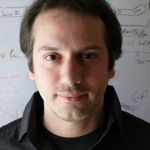Across-the-board success for Portugal in European Research Council funding

With a set of results yet to be announced, the number of ERC Studentships secured by researchers in Portugal in 2015 is ten: 4 Starting Grants (for researchers with two to seven years' post-doctoral experience); 3 Consolidator Grants (for researchers with more than seven years' experience after obtaining their doctorate) and 3 Proof of Concept Grants (for ERC-funded researchers who wish to take their results to the market or address social challenges).
José Bessa, who leads a team at I3S (Institute of Health Research and Innovation, University of Porto), was the fourth scientist to be awarded a prestigious ERC Starting Grant, a Studentship worth 1.5 million euros. In his words, "the ERC Starting Grant will allow us to develop a 5-year research project at the highest level, using cutting-edge technology and with a highly specialized and dedicated team of scientists", which will seek to identify how DNA sequences that do not code for genes contribute to pancreatic diseases, in particular diabetes. Through the zebrafish study, José Bessa intends to identify and test new sequences associated with diabetes, without resorting to patients. However, the results of this team's research will have a strong impact on the treatment of diabetes in humans, by identifying potential new therapeutic targets.



Edgar Gomes (Institute of Molecular Medicine, University of Lisbon), Rui Costa (Champalimaud Neuroscience Program) and António Jacinto (Centro de Estudos de Doenças Crónicas, Universidade Nova de Lisboa), having already been funded by the ERC, recently secured funding to explore the innovative potential of their research. They obtained Proof of Concept Grantswhich will allow them to develop prototypes and explore the therapeutic potential of drugs, with the aim of transferring the results of their work to industry.
Edgar Gomes will use the Proof of Concept Grant to commercially implement the prototype of the three-dimensional cellular system developed in his laboratory, which mimics certain muscle diseases. The aim is that this prototype can be used in any laboratory in the world to test new drugs for the treatment of these debilitating diseases.
Rui Costa is also betting on building a prototype of a portable brain-machine interface that can be adapted to different types of equipment, to be used in the health area, but also for entertainment and to support everyday tasks.
António Jacinto, in partnership with the start-up company Thelial, intends to test the drugs that the company has developed for the treatment of Leaky Gut Syndrome and other pathologies that compromise the lining of organs.



These Studentships, announced by the ERC in January, follow the 3 Consolidator Grants announced at the end of 2015, worth around 2 million euros each. Marina Costa Lobo (Institute of Social Sciences, University of Lisbon) stands out among those selected by the ERC in 2015 because her research is in the social sciences. Her Consolidator Grant will enable her to study the impact of the "Europe" theme on parliamentary elections held in various countries since the start of the Eurozone crisis.
Mónica Dias will continue her research into the role of centrioles (small cell structures) in cell division, cell movement and communication with neighboring cells, with an impact on understanding nervous system disorders, cancer and infertility.
Hélder Maiato seeks to understand the mechanisms that control the process by which chromosomes separate during cell division, known as mitosis. Errors in this tightly controlled process lead to aneuploidy - cells with more or fewer chromosomes than they should have - a prevalent phenomenon in tumor cells.
Monica Bettencourt Dias, Rui Costa, Edgar Gomes and José Bessa were selected for the FCT Researcher Program in 2012 and 2013.
(Image credits: I3S - Instituto de Investigação e Inovação em Saúde; Instituto de Medicina Molecular; Centro de Estudos de Doenças Crónicas; Instituto de Ciências Sociais; Instituto Gulbenkian de Ciência, Álvaro Isidoro)